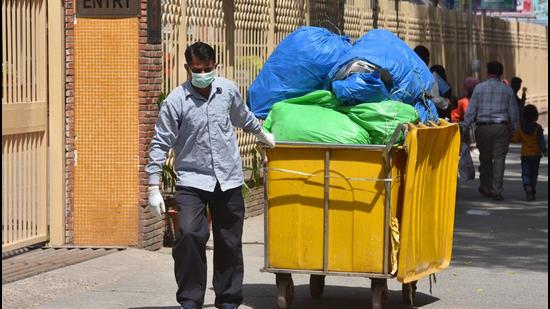Tackling the issue of biomedical waste: The pandemic has exposed India’s broken system of biomedical waste management. If this waste is not managed scientifically, it can cause great harm to the environment and to human health.

The Noida Authority in the Delhi-National Capital Region has put up 500 red-coloured bins at city markets, cremation grounds, and other sites to dispose of Covid-19 waste such as masks, gloves and personal protective equipment (PPE) kits. According to the authority’s estimate, Noida is producing at least 70 kg of biomedical waste a day. This is one example of a wider challenge posed by the pandemic — of tackling Covid-19 waste.
According to a Central Pollution Control Board report, released in November 2020, India generated around 33,000 tonnes of Covid-19 biomedical waste between April and November. Before the pandemic, regular biomedical waste generation in India was at 610 MT per day, but now, the waste has gone up to 765.5 MT per day. While Maharashtra has been the biggest contributor to biomedical waste, not a surprise given it has had the highest number of cases nationally, Uttar Pradesh and Delhi also figure among the top 10 waste generators.
The pandemic has exposed India’s broken system of biomedical waste management. If this waste is not managed scientifically, it can cause great harm to the environment and to human health. It is imperative to define Covid-19 waste; identify different types of waste generators; launch a large-scale campaign for awareness related to PPE usage. Urban local bodies must provide separate waste bins, and push citizens to segregate waste at source. The government must also augment the capacities of biomedical treatment units with appropriate monitoring strategies and work with all stakeholders — doctors, innovators and medical items and equipment manufacturers — to come up with a plan to reduce the waste burden.





